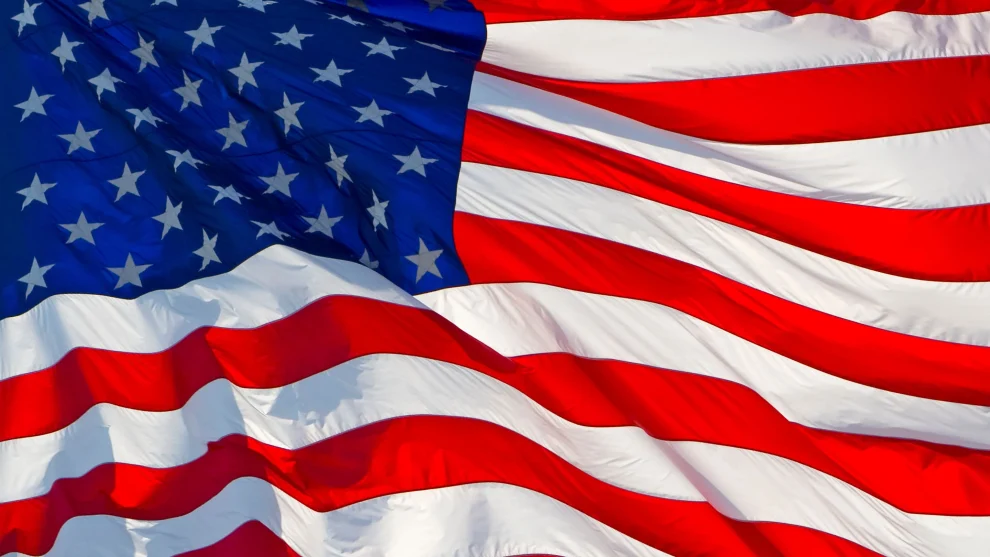More than 34,000 Nigerians became citizens of the United States between 2020 and 2022, according to the latest Naturalisations Annual Flow Report from the US Department of Homeland Security.
The report, compiled by the Office of Homeland Security Statistics, draws its data from the Form N-400, the application required for US citizenship. It also utilizes electronic case files maintained by US Citizenship and Immigration Services (USCIS) to track applicants throughout the process, from fingerprinting to the citizenship oath ceremony.
The figures indicate that 8,930 Nigerians were granted citizenship between October 2019 and September 2020. This period included an 11-week suspension of all oath ceremonies due to the COVID-19 pandemic, from March 18 to June 4, 2020.
In the following year, 2021, 10,921 Nigerians obtained US citizenship as USCIS processed a backlog of applications resulting from the pandemic. The year 2022 saw a record high of 14,438 Nigerians taking the citizenship oath, a 32% increase compared to the previous year.
These three years account for a total of 34,289 new Nigerian-American citizens, representing approximately three per cent of the 248,553 Africans who were naturalized during that period.
When naturalizations were categorised by country of birth, Nigeria and the Democratic Republic of Congo were the only two African nations to feature in the global top 30. Nigeria recorded the highest number of naturalizations among African countries, followed by the DRC, where naturalizations nearly doubled in 2022 to around 6,000. Other African applicants from various nations are grouped into an “All other countries” category.
Overall, the naturalization of African citizens in the US saw a significant increase of 40% between 2021 and 2022, the highest growth rate among all regions.
Across all regions globally, Mexico accounted for the highest number of naturalizations during the three-year period, with 326,237 individuals. India followed with 171,114, showing a steady increase each year. The Philippines, Cuba, the Dominican Republic, Vietnam, the People’s Republic of China, Jamaica, El Salvador, and Colombia also featured prominently in the top 10 countries of birth for new US citizens. Together, these 10 countries accounted for almost half of the total 2.4 million naturalizations completed during the three-year window.
USCIS notes that the number of applications and approvals can vary, as some applications are denied or finalised in a subsequent fiscal year.
The naturalization of foreign nationals in the United States is governed by the Immigration and Nationality Act of 1952. USCIS, a Department of Homeland Security agency, is responsible for screening applicants, conducting background checks, reviewing residency history, and testing English language proficiency and knowledge of US civics.
According to the Department, applicants for naturalization must meet specific legal requirements and submit Form N-400 with supporting documentation. USCIS conducts thorough investigations, including security and criminal background checks, reviews immigration records, conducts interviews, and assesses English and civics knowledge.
Upon approval, applicants are scheduled for a mandatory oath ceremony. Generally, eligibility for naturalization requires applicants to be at least 18 years old, have been a lawful permanent resident for at least five years (or three if married to a US citizen), and have maintained continuous residency in the US.
Historically, European immigrants dominated US naturalizations. However, the 1965 amendments to the Immigration and Nationality Act, which abolished national-origin quotas, led to increased immigration from Asia and, subsequently, Africa. The OHSS report indicates that Asia surpassed Europe in naturalizations in the 1970s. Since 2020, Africans have shown the fastest growth rate in naturalization, with a median permanent residency period of six years before becoming citizens, one year less than the global average.
The total number of US naturalizations rose to over 969,000 in 2022, a 19% increase from 2021 and 34% higher than the average between 2010 and 2020. With USCIS currently processing applications efficiently, Nigerian applicants who filed after October 2024 may complete their oath ceremonies as early as the following summer.





Add Comment